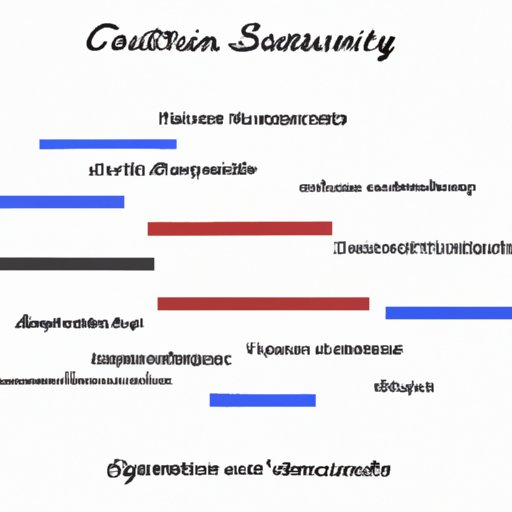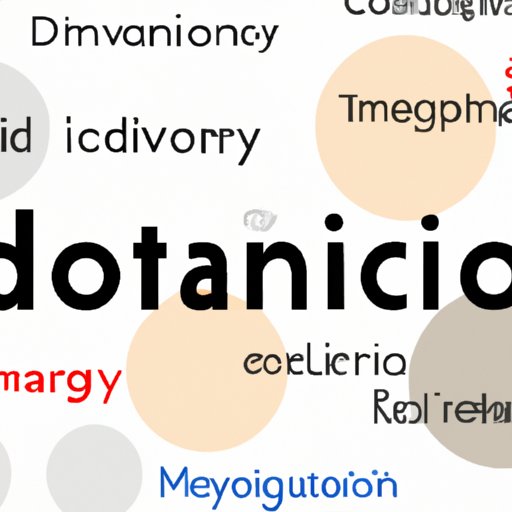Introduction
Cultural identity is an important concept that has been explored by many scholars in various fields of study, from sociology to anthropology and linguistics. This article will delve into the concept of cultural identity, looking at its definition, the factors that shape it, and its implications for global society. It will also explore how cultural identity impacts everyday life, as well as its role in personal narratives.

Exploring the Concept of Cultural Identity: A Definition and Analysis
At its core, cultural identity is the sense of belonging one has to a particular culture or group. According to sociologist Geert Hofstede, “Cultural identity is the sum total of all the internalized values, beliefs and behaviors that distinguish a group of people from another.” In other words, cultural identity is not just about where you come from or what language you speak, but also about the shared values and practices that define a particular culture.
There are several different types of cultural identity, including ethnic identity (based on race or ethnicity), national identity (based on nationality), and religious identity (based on faith). Each type of cultural identity is shaped by a variety of factors, such as geography, language, religion, politics, economics, and history. Additionally, cultural identity can be influenced by other elements, such as gender, age, and class.
Examining Cultural Identity from a Global Perspective
In today’s increasingly interconnected world, cultural identity has become even more complex. The rise of globalization has led to a greater exchange of ideas, goods, and services across national borders, resulting in a blending of cultures. As a result, individuals have been forced to grapple with their own identities in the face of a rapidly changing world.
Cross-cultural communication and exchange are essential components of globalization. Through these forms of dialogue, individuals can gain a deeper understanding of different cultures and the experiences of those who live within them. By engaging in conversations across cultures, we can learn to appreciate the diversity of perspectives and ideas that exist around the world.
How Does Cultural Identity Impact Our Everyday Lives?
Cultural identity affects our everyday lives in countless ways. From the food we eat to the clothes we wear, our cultural identity informs our decisions and shapes our worldview. For example, if someone is raised in a family that speaks a certain language, they may choose to speak that language at home, even if it is not their native tongue.
In addition, cultural identity can impact our relationships with others. We are more likely to form connections with people who share similar backgrounds and experiences. These shared experiences create a strong bond between individuals, allowing them to find common ground and build meaningful relationships.

Understanding Cultural Identity through Personal Narratives
Personal narratives are powerful tools for exploring cultural identity. By listening to stories of individual experiences, we can gain insight into the complexities of cultural identity and the unique ways in which each person navigates their own identity. Personal narratives can also provide us with valuable lessons about the importance of respecting and understanding different cultures.
Listening to the stories of others can help us to better understand our own cultural identity. We can see how our own experiences compare to those of others, and learn to appreciate the diversity of perspectives that exist in the world.

The Social Construction of Cultural Identity
It is important to recognize that culture is a socially constructed phenomenon. As sociologist Anthony Giddens explains, “Culture is not a thing, but rather a set of practices, meanings and symbols which are constantly being produced, reproduced and transformed.” In other words, culture is something that is created, maintained, and changed through human interaction.
The concept of intersectionality is also important when considering the social construction of cultural identity. Intersectionality is the idea that different aspects of identity, such as race, gender, and class, intersect and interact to create unique experiences and perspectives. Understanding intersectionality helps us to better understand how cultural identity is shaped by multiple factors.
The Role of Language in Constructing Cultural Identity
Language is an essential tool for expressing culture and constructing cultural identity. Language is not only a means of communication, but also a way of constructing and conveying meaning. By using language, individuals can express their cultural identity and connect with others who share similar experiences.
However, language can also be used as an instrument of power. Those who possess knowledge of multiple languages have greater access to resources and opportunities than those who do not. This unequal power dynamic can perpetuate systems of oppression and marginalization, making it even more difficult for certain groups to express their cultural identities.
Conclusion
In conclusion, this article has explored the concept of cultural identity, examining its definition, global implications, influences on daily life, and role in personal narratives. It has also looked at how culture shapes identity, the power of language, and the importance of understanding intersectionality when considering cultural identity. Understanding cultural identity is essential for fostering respect and appreciation for the diverse perspectives and experiences that exist in the world.
(Note: Is this article not meeting your expectations? Do you have knowledge or insights to share? Unlock new opportunities and expand your reach by joining our authors team. Click Registration to join us and share your expertise with our readers.)
